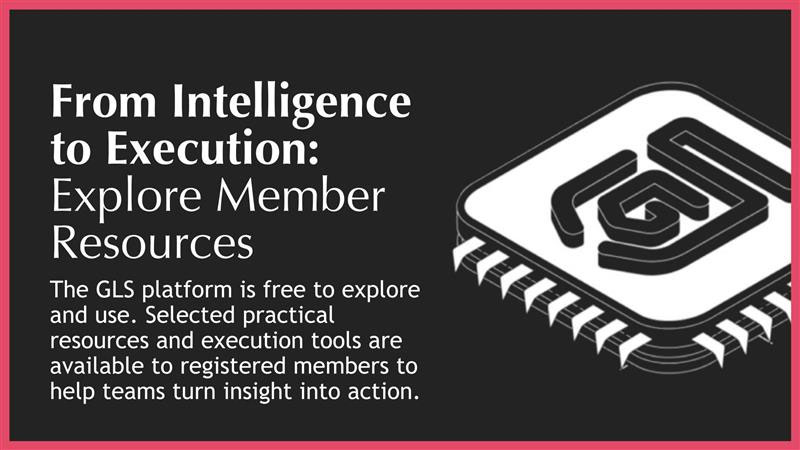The GLS Legal Operations Centre
Intelligence, resources and execution support
Transformation Tube Map
Knowledge Centre
Legal Dept.
Resources
Managed Legal Services
Members
Resources
Legal Ops
Community
Back
Performance Management
What Is It
The Performance Management Station is the operational oversight function that ensures your managed legal service (MLS) continues to deliver value over time. It is the mechanism by which legal departments monitor, measure, and refine the performance of their MLS provider - ensuring alignment with business goals, legal standards, and service expectations.
MLS is not a static solution. It must evolve with the business, respond to changing legal demands, and continuously improve. Performance management provides the feedback loop that makes this possible. It tracks turnaround times, resolution rates, instructing behaviours, document quality, and SLA compliance - enabling data-driven decisions and service optimisation.
At GLS, performance management is a core discipline. We deploy detailed diagnostics to assess every aspect of MLS delivery. We don’t just measure - we interpret. Our insights help legal teams adjust workflows, recalibrate SLAs, and improve instructing protocols. This is how we keep the MLS sharp, responsive, and aligned.
Critically, performance management is also about accountability. It ensures that the MLS provider remains focused, consistent, and transparent. Without it, service quality drifts, stakeholder confidence erodes, and transformation loses momentum.
Scope
The scope of the Performance Management Station typically includes:
◼️SLA Monitoring: Tracking compliance with service level agreements across all workflows.
◼️Turnaround Time Analysis: Measuring how quickly legal matters are resolved.
◼️Resolution Quality Assessment: Evaluating the accuracy, completeness, and usability of legal outputs.
◼️Instructing Behaviour Diagnostics: Analysing how legal requests are made and managed.
◼️Document Optimisation Review: Assessing the quality and efficiency of legal documentation.
◼️Stakeholder Feedback Collection: Gathering input from business users and legal teams.
◼️Performance Reporting: Creating dashboards and reports for ongoing visibility.
◼️Continuous Improvement Planning: Using data to refine service delivery and legal processes.
Resource Status
The Performance Management Station station is considered a Specialist resource within the GLS Legal Operations model.
A Foundational Resource: Is responsible for determining the overall performance capabilities of a “critical” legal function. If it is not optimised, the function can never be optimised.
A Repeater Resource: Supports the performance of multiple "critical" legal functions and as such represents a "ripple effect" productivity intervention point.
A Specialist Resource: Is responsible for driving the performance of a very specific part of an individual legal function. Its productivity contribution is limited to that single legal function.
Best Practice Features
The best practice features of the Performance Management Station are as follows:
◼️Real-Time SLA Tracking: Performance is monitored continuously, not periodically.
◼️Multi-Dimensional Diagnostics: Analysis covers speed, quality, behaviours, and documentation.
◼️Stakeholder Engagement: Feedback is actively sought and incorporated into service refinement.
◼️Data-Driven Adjustments: SLAs and workflows are recalibrated based on performance trends.
◼️Transparent Reporting: Dashboards provide clear visibility into service outcomes.
◼️Governance Alignment: Performance is assessed against legal policy and risk thresholds.
◼️Provider Accountability: MLS vendor is held to measurable standards and improvement targets.
◼️Improvement Roadmap: Insights are used to guide ongoing optimisation of legal service delivery.
Business Value
The Performance Management Station delivers the following value to the Business:
◼️Consistent Service Quality: Legal support remains reliable and aligned with business needs.
◼️Improved Cost Efficiency: Data identifies inefficiencies and enables smarter resource allocation.
◼️Faster Deal Execution: Performance tracking drives speed and accountability.
◼️Enhanced Transparency: Stakeholders understand how legal is performing and improving.
◼️Better Vendor Management: MLS provider is held to clear standards and improvement goals.
◼️Scalable Legal Support: Performance data supports expansion and resource planning.
◼️Smarter Investment Decisions: Insights inform budgeting and transformation strategy.
◼️Operational Resilience: Legal support adapts to changing demands without disruption.
Legal Department Value
The optimisation of this Station will build value in the legal department in the following ways:
◼️Performance Visibility: Legal teams understand how services are performing and where to improve.
◼️Accountability Framework: SLAs and diagnostics create clear expectations for MLS providers.
◼️Process Refinement: Data highlights inefficiencies and guides workflow optimisation.
◼️Team Engagement: Legal professionals are empowered by feedback and performance goals.
◼️Stakeholder Trust: Business units see legal as transparent and performance-driven.
◼️Transformation Enablement: Performance data supports ongoing change and innovation.
◼️Governance Assurance: Delivery remains within legal policy and risk boundaries.
◼️Continuous Learning: Metrics enable ongoing refinement and capability building.
Who Needs It
The Performance Management Station is essential for:
◼️Legal departments seeking to implement managed legal services
◼️Teams undergoing legal transformation or restructuring
◼️Legal operations professionals designing scalable service models
◼️GCs and Heads of Legal aligning legal support with business strategy
◼️Procurement functions looking to streamline and reduce costs
Productivity Consequences
A legal team operating without a Performance Management Station will face a wide range of inefficiencies including:
◼️Unmeasured Service Quality: Legal support varies without visibility or control.
◼️Poor MLS Oversight: Provider performance drifts without accountability.
◼️Inefficient Processes: Bottlenecks and delays persist without diagnostic insight.
◼️Stakeholder Frustration: Business units don’t understand legal’s value or responsiveness.
◼️Transformation Stagnation: No data to justify change or track improvement.
◼️Budgeting Blind Spots: Legal spend is unmanaged and unpredictable.
◼️Low Team Engagement: Lack of goals and feedback reduces motivation.
◼️Risk Exposure: Inconsistent service quality increases compliance and reputational risk.
Tech Implication
The Performance Management Station has a strong tech profile:
◼️Analytics Platforms: Tools are needed to extract, analyse, and visualise performance data.
◼️SLA Tracking Systems: SLAs must be embedded into workflow platforms and monitored in real time.
◼️MLS Integration: Provider platforms must support SLA reporting and diagnostics.
◼️Automation Triggers: SLA breaches can trigger alerts, escalations, or workflow adjustments.
◼️Data Governance: Metrics must be consistently captured and securely stored.
◼️Performance Dashboards: Visual tools enable stakeholder engagement and decision-making.
◼️Tech-Driven Improvement: Data informs automation, process redesign, and resource planning.
◼️Scalability: Tech platforms must support expansion of SLA scope and benchmarking depth.
What Next?
Full details of our core managed legal services offering can be found here in our detailed GLS Managed Legal Service Overview offering overview.
If you would like us to scope the potential for your legal team to implement a managed legal service for contracting support - please feel free to utilise our online managed legal service diagnostic tool.
By answering some basic needs criteria we can give you a view of whether such a solution might make sense.
Feel free to explore each of the critical resource enablers that are comprised of an optimally performing Managed Legal Services Line by clicking on the interactive map at the top of the page.
Visit each Station for in-depth analysis of what it takes to make this in-house function really perform. Or you can go back to the overall GLS Legal Transformation Tube Map.
In most cases, the GLS Legal Operations Centre contains everything you need to effectively optimise your Managed Legal Services Line yourself – or feel free to reach out to us – and we can do it for/with you.
Feel free to contact GLS to book a consult to discuss your Managed Legal Services Line optimisation needs right here.

The GLS Legal Operations Centre
Register to access your complimentary Day 1 Resource Stack packed with legal team performance resources.

GLS Ultimate Guide To Legal Operations
Download this and read it thoroughly and regularly. It is a wonderful transformation companion.

Book A No-Obligation Consultation
If you would like discuss your legal transformation needs, please book a 30 minute free consultation with us.

GLS Legal Transformation Boot Camp
Our hugely successful, 10-week long, email-based boot camp on how to effectively transform your legal team.




